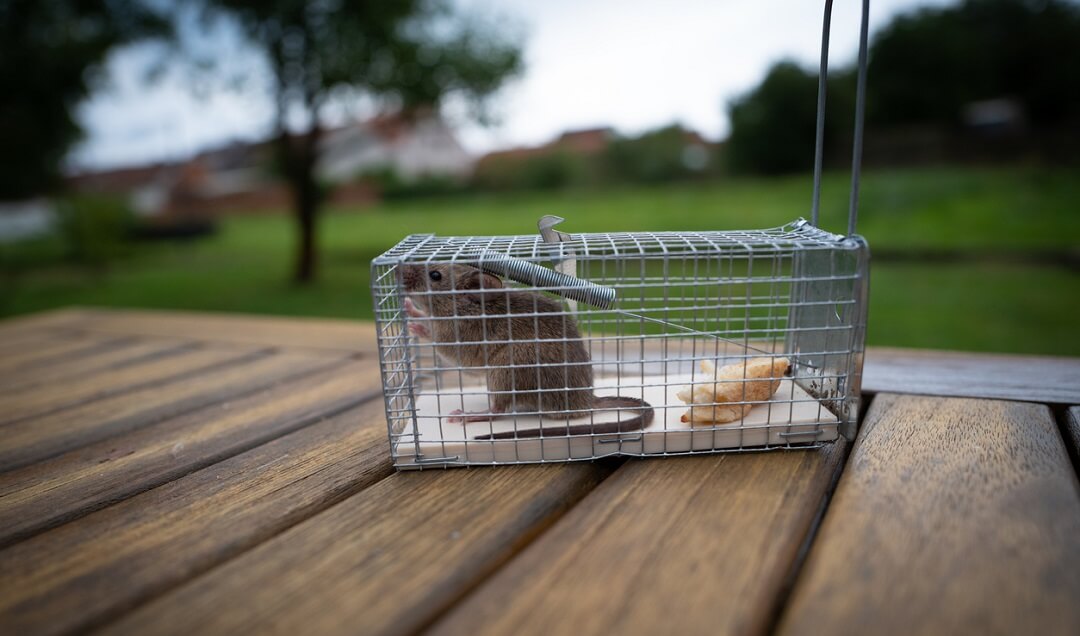Are mice or rats taking over your home? If you are finding yourself in a never-ending battle with rodents, you may be tempted to try many of the available rodent repellents. But are these methods effective? Unfortunately, while some may provide some sort of deterrent, rodent repellents are likely to be less effective than you would hope.
While there are a number of different rodent repellents that you can try, how you implement their use can also make a dramatic difference in how effective they prove to be. Here we will take an in-depth look at the different types of rodent repellents, how to best implement them, and what results you can expect.
Keeping your home free of rodents can feel like a full-time job, but with the right plan in place and, in many cases, the help of professional rodent control, you can establish a plan that keeps these pests from entering and making residence in your home.
Key takeaways
- Rodent repellents can help deter mice and rats, but their effectiveness varies. The type used, how it’s applied, and the nature of the rodent problem all factor in.
- Repellents come in many forms: natural (like essential oils and mothballs), electronic, chemical (like poison and sprays), and physical traps.
- Electronic repellents emitting sound waves or vibrations are safe for humans and pets, but their usefulness is questionable as rodents may adapt to them.
- While chemical repellents can be effective, they can also be hazardous to pets and other wildlife. Physical traps are effective but need regular maintenance.
- DIY solutions can work, but severe infestations might require professional help. It’s often necessary to combine different deterrents for the best results.
What are rodent repellents?
Rodent repellents are substances or devices that are designed to keep rodents away from a specific area, such as a home, garage, or garden. Each type of repellent works slightly differently and provides different levels of effectiveness.
How does it work?
Rodent deterrents work in different ways depending on the specific product. For example, natural repellents work by filling an area with a scent that rodents find intolerable. Chemical repellents work by baiting rodents with a chemical that will kill them, and physical repellents trap rodents in live traps or kill traps.
Types of rodent repellents
As we have mentioned, many different types of rodent repellents are designed to work differently. Some are more effective than others, with some studies showing repellents, such as electronic repellents, are not as effective as they claim, and you may need to consider professional rodent management.

Natural repellents
Natural repellents are substances that rodents find unpleasant or offensive, such as essential oils (peppermint, eucalyptus, or citronella), ammonia, or vinegar.
Essential oils
The idea behind essential oils as a rodent deterrent is because rodents do not well tolerate the scents used. Top essential oils to consider include peppermint oil, eucalyptus oil, and castor oil. These essential oils can be placed on cotton balls or mixed with water in a spray bottle and spread around your home or in areas where rodents have been detected.
Mothballs
Mothballs are another option that works in a similar way to essential oils. Mothballs contain the chemicals naphthalene or paradichlorobenzene. These chemicals put off a strong odor that rodents find unpleasant. While mothballs can be an effective deterrent in small areas, keep in mind that, when used in larger quantities, the chemicals can contribute to respiratory problems when too much is inhaled.

Electronic repellents
These are devices that emit high-frequency sound waves or vibrations that are intended to repel rodents. They are generally safe for humans and pets, but their effectiveness is questionable.
Ultrasonic devices
Ultrasonic devices emit high-frequency sound waves that are intended to repel rodents such as mice and rats. The sound waves are typically above the range of human hearing but are thought to be unpleasant to rodents, causing them to avoid the area where the device is operating. The use of these devices and their level of effectiveness is in question, with many reporting that, while they may work at first, some rodents can become used to the sound, making them useless as a repellent.
Electromagnetic devices
Electromagnetic devices use low-frequency electromagnetic fields to create an uncomfortable environment for rodents, causing them to leave the area. The idea behind these devices is that they emit electromagnetic waves that interfere with the nervous system of rodents, making it difficult for them to navigate, communicate, and breed.

Chemical Repellents
These are substances that are designed to be poisonous or distasteful to rodents. They can be in the form of sprays, baits, or pellets.
Rat poison
Rat poison, also known as rodenticides, is a chemical used to kill rodents. Rat poison works by disrupting the rodent’s nervous system, causing fatal internal bleeding or other health complications. Most rat poisons contain anticoagulant chemicals, which prevent the blood from clotting and lead to internal bleeding. While these can be very effective at reducing the rodent population in your home, they can also be very dangerous to pets and other wildlife. When your pets or outdoor wildlife come in contact with poisoned rodents, the poison can in turn affect the other animal.
Sprays and pellets
Rodent repellent sprays can either be chemical or natural. As mentioned above, adding essential oils to water in a spray bottle and spraying in areas with rodent traffic can provide some success. Many over-the-counter rodent deterrent sprays utilize this same method, with many choosing peppermint oil.
Another option is pellets designed to be spread outside around the perimeter of your home. Made from recycled paper and essential oils, these pellets provide a barrier around your home that is safe around pets and children.

Physical Repellents
Physical repellents, or traps, are devices designed to catch and kill rodents. They come in different types, including snap traps, glue traps, and live traps.
Click here to learn more about professional rodent control.
Factors that impact the effectiveness of rodent repellents
There are many different factors that can affect just how well rodent deterrents work at keeping mice and rats away from your home. In many cases, combining many of the different deterrents can prove to be more effective. Here are some things to consider when using rodent deterrents.
1. Type of repellent
Effectiveness will depend on the type or types of repellents you choose to use. For example, snap traps may be more effective at helping control a large mouse infestation, while the use of essential oils may help prevent an infestation from occurring.
2. Duration and maintenance
When deciding on repellent options, you need to consider how long they will work for and what is required to maintain their effectiveness. For example, snap traps will require regular checking, eliminating the rodents, and resetting the trap to maintain effectiveness. Essential oil sprays will require regular applications in order to keep the scent strong enough to work as a deterrent.
3. Rodent species
Choosing which deterrents you use will depend on the type of rodents you have in and around your home. For example, some deterrents will work better than others for mice than for rats.
4. Severity of infestation
The effectiveness of rodent deterrents will also depend on the size of your rodent problem. A prevention and control plan for a larger infestation may require multiple deterrent methods for an extended period of time.
5. Placement of repellent
Where you place the deterrents can make all the difference when it comes to effectiveness. You want to place repellents in areas where the rodents frequent, such as along baseboards or near food supplies.
Keeping rodents at bay
While DIY rodent prevention can be successful, in cases of a widespread rodent infestation, you may need to call in professional rodent control specialists in order to ensure that the rodents are completely eliminated as well as identify any potential damage they may have caused to your home. Understand that not all rodent repellents work as effectively as you may want, and you may find it necessary to implement a variety of these tools in order to be effective.
When repellents just aren’t enough
If you have been fighting the rodent battle for some time with little success, the team at Insight Pest Management can provide effective solutions and help you create a rodent-free environment.
Schedule an appointment today to learn how our rodent experts can clear a rodent infestation and help prevent their return.


